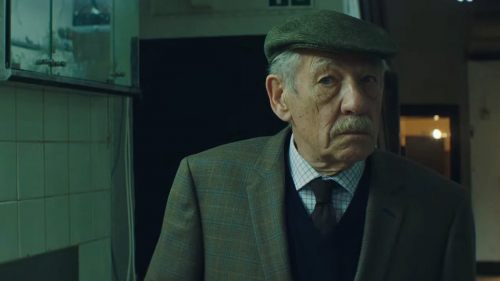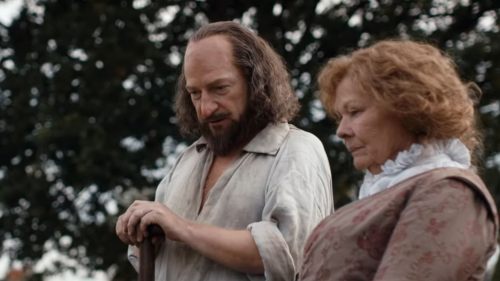THE GOOD LIAR Review: Playing The Long Game
There’s a big difference between making a suspenseful film and making a film with a twist. Suspense requires a sense of mystery and engagement, an inkling of that maybe there’s more going on than what we’re being shown, or that what we’re being shown has the potential to lead somewhere tense or surprising. A twist, meanwhile, only requires the revelation of new information not explicitly given to the audience; it may be informed by preceding suspense, and most good twists are, but functionally a twist in the narrative is little more than a surprise. It’s what is done with that twist that matters most, which is ultimately what makes The Good Liar work as a film. It does not, however, come across as suspenseful as it hopes to in the process.
The set-up is deceptively simple: Roy (Ian McKellen) is a con man looking to score big by gaining the trust and companionship of the widowed Betty (Helen Mirren). After the two meet through an online dating service and reveal that their profiles were deceptively free of their hidden faults, Roy and Betty hit it off in a platonic bid to cure their apparent mutual loneliness. Betty’s grandson Steven (Russell Tovey) is immediately suspicious of Roy, and his paranoia only escalates when Roy moves in with Betty after only a short time. Meanwhile, we get a glimpse at Roy’s secret life as a con artist with his charming accomplice Vincent (Jim Carter).
Though the story is propelled by Roy’s goal to deprive Betty of her wealth, it rarely feels like there are real, tangible obstacles in Roy’s path. Betty is a trusting and affable companion, but it nearly feels like a waste of Mirren’s acting talents to have her dither about as an overly trusting homebody. Thankfully, McKellen’s interpretation of Roy as a conniving, transparently toxic manipulator is compelling enough on its own to drive the film, as the actor layers his performance with deception against the world and, most interestingly, himself.
But then, of course, there’s the twist, which entirely justifies the occasionally dull path to get there. However, where Nicholas Searle’s novel was a bit too eager to telegraph its final act reveal, Jeffrey Hatcher’s screenplay is perhaps too reticent to drop any hints. The novel had the benefit of living in Roy’s head, displaying a contrast between Roy’s thoughts and the game he played, diving into different points in Roy’s past to give you perspective on where this geriatric trickster’s life has taken him. The film streamlines this into a handful of flashbacks that strip away any red herrings or superfluous context, and though director Bill Condon wisely implements odd pieces of visual foreshadowing and allusion to set up the climax, it doesn’t feel like enough to justify the kind of clue-picking revisitation the narrative desperately wants to call for.
Of course, getting into why the third act twist is good would deprive the film of its biggest pleasure, but suffice it to say that it exemplifies a biting critique of Roy’s character and makes for a satisfying conclusion to Roy’s long con. In adapting to the screen, Condon and Hatcher could have been a bit more judicious in setting up the necessarily lengthy exposition dump that grounds the climax, but they compensate through McKellen’s excellent character work and Mirren’s subtleties. The Good Liar surely lives up to its title, hiding a good film in the guise of a mediocre one.



